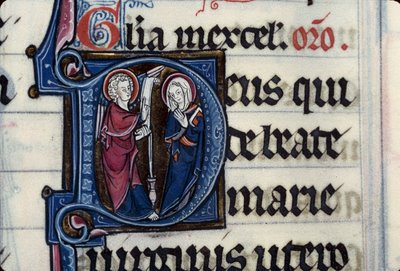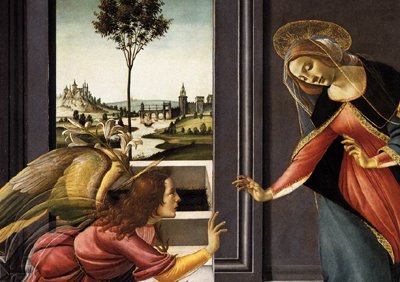
Deus, qui de beatæ Mariæ Virginis utero Verbum tuum, Angelo nuntiante, carnem suscipere voluisti: præsta supplicibus tuis; ut, qui vere eam Genitricem Dei credimus, ejus apud te intercessionibus adjuvemur. Per eumdem Dominum... (Collect of the Feast of the Annunciation of the Blessed Virgin Mary: "O God, who didst will that Thy Word should take flesh, at the message of an Angel, in the womb of the Blessed Virgin Mary, grant to Thy suppliant people, that we who believe her to be truly the Mother of God, may be helped by her intercession with Thee. Through the same Lord...")

He saw the reasonable race, the race of men that, like Himself, expressed the Father's Mind, wasting out of existence, and death reigning over all in corruption. He saw that corruption held us all the closer, because it was the penalty for the Transgression; He saw, too, how unthinkable it would be for the law to be repealed before it was fulfilled.

He saw how unseemly it was that the very things of which He Himself was the Artificer should be disappearing. He saw how the surpassing wickedness of men was mounting up against them; He saw also their universal liability to death. All this He saw and, pitying our race, moved with compassion for our limitation, unable to endure that death should have the mastery, rather than that His creatures should perish and the work of His Father for us men come to nought, He took to Himself a body, a human body even as our own.

Nor did He will merely to become embodied or merely to appear; had that been so, He could have revealed His divine majesty in some other and better way. No, He took our body, and not only so, but He took it directly from a spotless, stainless virgin, without the agency of human father—a pure body, untainted by intercourse with man. He, the Mighty One, the Artificer of all, Himself prepared this body in the virgin as a temple for Himself, and took it for His very own, as the instrument through which He was known and in which He dwelt.
Saint Athanasius
On the Incarnation
On the Incarnation